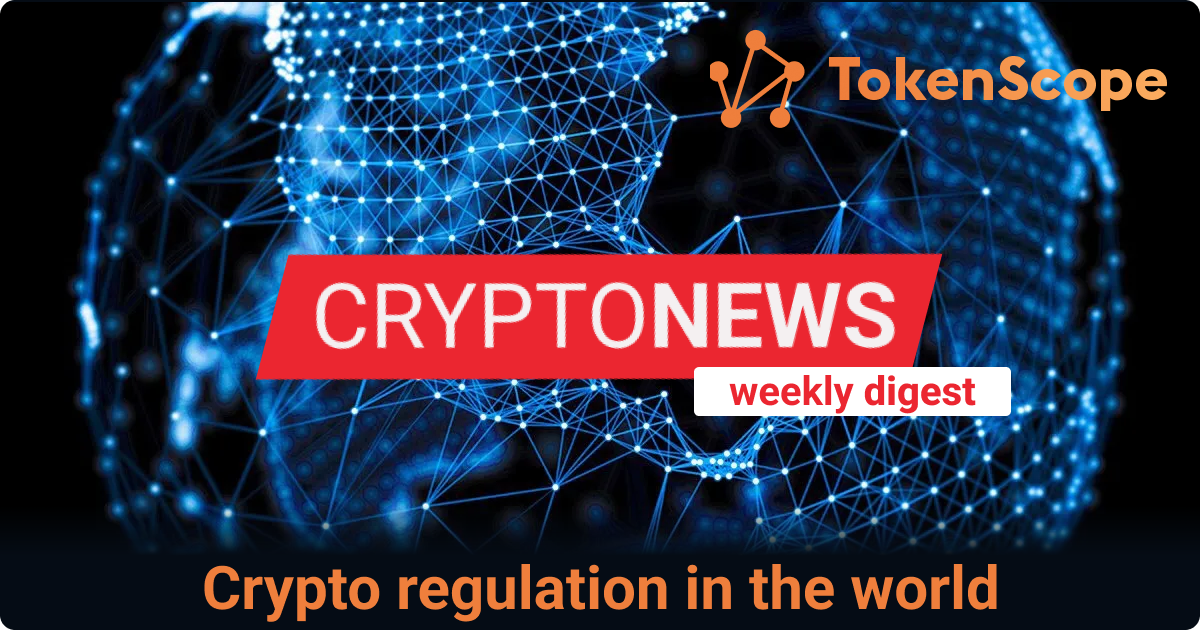Crypto regulation in the world weekly digest #165

USA
The U.S. Senate Finance Committee is scheduled to hold a significant hearing on October 1, 2025, to discuss the taxation of digital assets like cryptocurrencies. This hearing titled "Examining the Taxation of Digital Assets" will feature key industry representatives, including Coinbase's Vice President of Tax, Lawrence Zlatkin, as well as policy experts from Coin Center and other legal specialists. The session aims to explore challenges with current crypto tax rules, potential reforms to ease compliance, asset classifications, and how to integrate digital assets more clearly into the federal tax code. The discussion also follows recommendations from the White House Digital Asset Working Group calling for tailored tax rules recognizing crypto as a distinct asset class.
Senators such as Cynthia Lummis are advocating for reforms that would provide tax relief by addressing double taxation issues for mining and staking rewards, introducing de minimis exemptions for smaller transactions, and clarifying how stablecoins should be taxed. The hearing also responds to concerns about the current corporate alternative minimum tax on digital assets, which some see as an unintended tax burden.
This is a pivotal moment for U.S. crypto tax policy as lawmakers seek to modernize the tax framework consistent with the evolving digital asset ecosystem.
EU
A consortium of nine major European banks including ING, Banca Sella, KBC, Danske Bank, DekaBank, UniCredit, SEB, CaixaBank, and RBI has announced plans to launch a euro-denominated stablecoin. This initiative aims to create a trusted payment standard within Europe’s digital ecosystem, leveraging blockchain technology to provide near-instant, low-cost, and 24/7 access to cross-border payments and programmable payment solutions.
The stablecoin will be fully compliant with the EU’s Markets in Crypto-Assets Regulation and is slated for issuance in the second half of 2026 under supervision and licensing by the Dutch Central Bank as an electronic money institution. The key objective is to enhance Europe’s strategic autonomy in digital payments and offer an alternative to the US-dominated stablecoin market, which currently holds about 99% of global stablecoin market capitalization. Participating banks will also be able to offer value-added services such as digital wallets and custody solutions for the stablecoin. The consortium has formed a new company headquartered in the Netherlands and plans to appoint a CEO pending regulatory approval. The project emphasizes efficiency, transparency, and programmability expected to unlock new use cases in supply chain management, digital asset settlements, and improved cross-currency settlements.
Kazakhstan
Kazakhstan has officially launched its first national stablecoin, named Evo (ticker: KZTE), pegged to the Kazakhstani tenge and issued on the Solana blockchain. The project marks a significant milestone in Kazakhstan's digital economy strategy, aiming to bridge traditional finance and blockchain innovation while promoting financial inclusion and expanding digital asset adoption across the country.
The launch of Evo represents Kazakhstan’s proactive approach to embracing blockchain technology combined with traditional finance. It reflects a strategic move by the National Bank to create a regulated, trustworthy digital asset ecosystem fostering innovation and improved financial accessibility. Kazakhstan, once a global Bitcoin mining hub, is advancing its digital economy by diversifying into regulated digital currencies aligned with national monetary policy objectives.
Governor Timur Suleimenov highlighted the transformative role of digital assets and blockchain in advancing new services and financial inclusion in Kazakhstan. The launch also complements earlier initiatives such as Kazakhstan’s digital tenge, Central Bank Digital Currency launched in 2023, enhancing practical payment solutions across sectors.
Evo is part of Kazakhstan’s broader ambitions to develop a vibrant Web3 ecosystem and digital asset market. The project works within the scope of new laws regulating digital financial assets, aiming to balance innovation with regulatory oversight to secure users and maintain monetary stability. Experts note this as a global trend where states adopt national stablecoins to modernize payment systems while preserving monetary sovereignty.
News from other countries:
- Russia is moving forward with plans to regulate crypto analytic services as part of its broader efforts to control and supervise cryptocurrency transactions within the country. By the end of 2025, Rosfinmonitoring plans to fully integrate Russian banks into its blockchain transaction analysis platform called "Transparent Blockchain". The goal is to enable the identification and monitoring of clients involved in cryptocurrency transactions, thereby enhancing anti-money laundering (AML) and counter-terrorist financing (CTF) measures within the Russian financial ecosystem.
We continue to highlight the news of the world of crypto regulation worldwide. Please stay with us!




